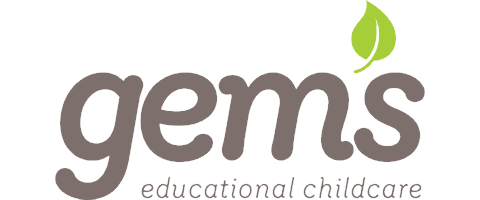Gems Newsletter August 2025
Play, Freedom, Nature, and.... Neuroscience? What learning looks like at Gems
By Shawn Barron - Head Teacher The Nest Kōwhai
As Early Childhood Educators, we are often asked, “What do you actually do?” And boy, do we LOVE to talk about it! You’ll see some of our teaching practices through conversations with kaiako and through your child’s learning stories, but if you’d like a deep dive into the careful consideration and planning behind all the fun your child is having at Gems, take a look below.
What is Learning?
Neuroscience Perspective – learning is a process by which the brain changes in response to experience. It involves changes in neural pathways and synaptic connections. During the first three years of a child’s life, the plasticity of the brain (ability to learn) is at the highest it will ever be.
Developmental Perspective – we know that childhood is defined by constant growth and change, developmental theories recognise that age and stage influence how and what a child is able to learn at any given point in their development.
NZ Education Perspective - Te Whariki – The New Zealand ECE Curriculum is a world leader in many aspects. It provides a holistic structure for responsive teaching to acknowledge that every child is on their own unique learning journey. It focuses on outcomes of knowledge, skill and attitudes that young children should develop through their early experiences.
“Competent and confident learners and communicators, healthy in mind, body and spirit, secure in their sense of belonging and in the knowledge that they make a valued contribution to society.”
How Young Children Learn
Children are competent learners from the moment they are born. The human brain is hard-wired to interact with its environment and store the information it experiences.
Play. Understanding how children learn requires a radical reconception of the word “Play.” Culturally, play is often considered a pastime of children before they move on to more serious pursuits. What we know as educators is that Play is Learning in its most intrinsic, free, and lasting form. From infancy, we are driven to explore everything around us, and we begin to build a map of the world we live in through our senses and interactions.
Relationship. It is believed that children learn through interaction with their environment, with others, and with their culture. Interactions between young children and their caregivers and peers are thought to be the primary factors in learning about social skills, boundaries, culture, communication, and language. Caregiving adults can serve as guides through early learning, especially with the foundation of a secure and responsive relationship.
How Play and Relationship Interact
Free Play: child-initiated and child-directed, unconstrained freedom of expression and open-ended interactions with their environment. Gems learning environments are set with careful intention so that free interactions are rich in opportunity.
“Learning: movement, proprioception, social skills, properties of the material and physical world, working theories problem solving, confidence, curiosity and resilience”
Guided Play:
child-centred and goal-directed. Teachers are attuned to children’s interests, strengths and learning needs and structure play opportunities with scaffolded support. This requires teachers to have a wide range of strategies and knowledge of child development, allowing for play that is both responsive and intentional.
“Learning: language, thinking, literacy, numeracy, questioning, wondering, making connections between what you already know and new information, setting goals”
Teacher-Led Play:
Adults choose the topics, outcomes, and modes of play. Teaching is conducted in a playful way that engages children while maintaining rules and structure. A great way to introduce new concepts.
The Gems Way
At Gems, your child has opportunities to experience all three kinds of play. We believe that the best way to build positive lifelong attitudes toward learning is to recognise that infants, toddlers and young children:
Experience each day differently – their rapid development means we need to respond to this child on this day
Require stimulation for healthy brain development
Require a broad range of experiences and emotions
Learn best once their physiological, safety, and emotional needs are met first
Need and deserve a “say” in how they spend at least some of their time
A Note on “School Readiness”
Our local schools have told us what skill set a child needs to move forward:
Social skills - some practice with manners, boundaries, and making friends
Emotional Regulation skills - ability to recognise and name emotions, developing skills for moving through difficult emotions
Self-care skills - body awareness, looking after your own things, eating and drinking when you need to, toileting when you need to.
Literacy and Numeracy - exposure to age-appropriate print items, languages, symbols, songs, and stories, recognising your own name, fine motor skills practice for pencil holding
Dispositions - coming to school with curiosity, persistence, kindness, respect, and joy for learning and trying new things
We hope you enjoy learning about learning as much as we do. If you have any questions or are interested in knowing more about our curriculum, pedagogy, or brain development, please let us know. You can keep up to date with your child’s learning on their Educa profile, or by checking in with their Primary Care Teacher.




